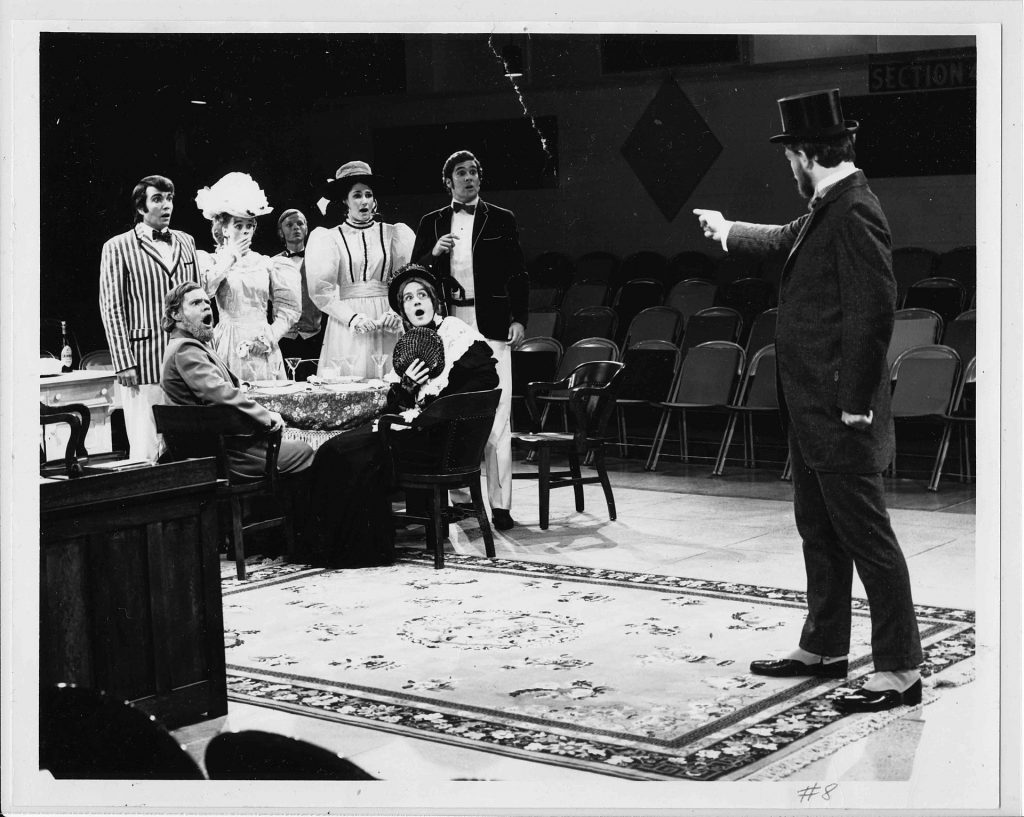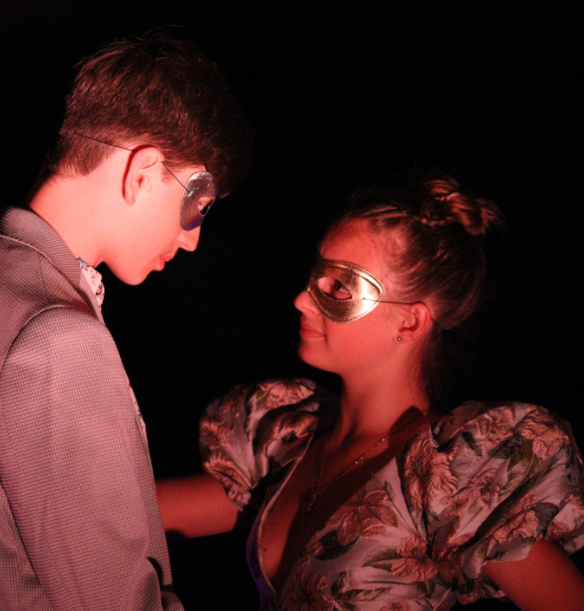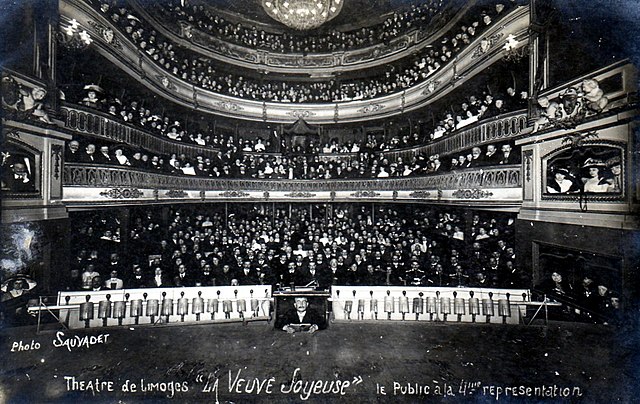
20 Scripts Now in the Public Domain
They say that every romance is a recreation of ‘Romeo and Juliet’ and every tragedy linked to ‘Macbeth’, but there is something invigorating about bringing old scripts to life, particularly when their status in the public domain gives the creative team an extended licence to reimagine the stories.
In Australia, works are generally no longer under copyright once the author has been deceased for more than 70 years. While there are exemptions to this rule, most works written by an author who died before 1950 can be considered part of the public domain. But what does this mean for theatremakers?
Well, a public domain work can be produced, reinterpreted, or recreated without the need to pay royalties. This is, however, not extended to adaptations or modern revisions of the text, so theatremakers should still be mindful of the scripts they utilise. In addition, theatremakers are encouraged to be respectful to playwrights of the past, to give credit where credit is due, and to ensure reproductions of historic pieces are not just legal, but ethical.
So exactly which stories of the past are now in the public domain? Our Theatre Haus team have compiled a list of 20 shows, all of differing variations, which are available. Fancy reading them? Links have also been provided, so check them out!
- H.M. Milner’s ‘Frankenstein; or, The Man and the Monster’ (1826)
Based off of Mary Shelley’s novel ‘Frankenstein; or, the Modern Prometheus’, Milner’s ‘Frankenstein; or, The Man and the Monster’ follows the story of a gifted scientist and his journey in creating a living entity. Things don’t go to plan, and the specimen is far from perfect. View Script
- Frank Wedekind’s ‘Pandora’s Box’ (1914)
After murdering her third husband, a young woman escapes from jail, becomes a prostitute and falls victim to Jack the Ripper. Wedekind’s ‘Pandora’s Box’ is a tragedy in three acts. View Script
- J.M. Barrie’s ‘Peter Pan’ (1904)
This well-known fairytale tells the story of a group of siblings who embark on an adventure to a faraway land where children no longer grow up, and adults are not permitted. View Script
- Oscar Wilde’s ‘The Importance of Being Earnest’ (1895)
One of the more popular public domain scripts, Wilde’s ‘The Importance of Being Earnest’ follows two bachelors who compete to win the hearts of two women, all the while maintaining alter-egos named Ernest. View Script
- George Bernard Shaw’s ‘Pygmalion’ (1913)
Named after a Greek mythological figure, Shaw’s ‘Pygmalion’ tells of a young flower girl, overlooked and neglected because of her appearance and speech, who overcomes her hardships through education and determination. View Script
- William Shakespeare’s ‘Macbeth’ (1606)
Shakespeare’s ‘Macbeth’ is about a Scottish general, persuaded by a prophecy to kill the king. Paranoia plagues him and he kills again. View Script
- Shakespeare’s ‘Hamlet’ (1603)
Another one from Shakespeare, ‘Hamlet’ follows a young man, vengeful after the death of his father, who plots to kill his uncle. Madness and existential crisis overcome him, as his uncle looks to have him killed in return. View Script
- Aristophanes’ ‘The Birds’ (414 BC)
Differing greatly from many of the comedies by Aristophanes, all the winged creatures of the world are convinced by a young Athenian to create a civilisation in the sky in ‘The Birds’. This blocks out all communication between men and gods, causing chaos. View Script
- Joseph Conrad’s ‘One Day More’ (1917)
Conrad’s one-act play, ‘One Day More’ follows an elderly man who spends every day preparing for and contemplating the arrival of his son, with whom he parted ways on less than good terms. View Script
- Marion Craig Wentworth’s ‘War Brides’ (1915)
In 1915, Wentworth published her best known play, ‘War Brides’, about a pregnant war bride who contemplates suicide after losing her husband on the frontline. View Script
- Percival Wilde’s ‘The Reckoning’ (1922)
A play in one act by American playwright, Percival Wilde, ‘The Reckoning’ is about a man who stops by the barber for a quick shave before an important meeting. He soon realises there is more to this exchange than meets the eye. View Script
- Rabindranath Tagore’s ‘The Post Office’ (1912)
Confined to his home because of an incurable disease, a young boy is swept away by his imagination and dreams of receiving a letter from the royal family. While written by Tagore in 1912, ‘The Post Office’ is quite an apt play in our isolated world. View Script
- J. M. Synge’s ‘Riders to the Sea’ (1904)
‘Riders to the Sea’ is a one-act tragedy that centres on a remote island near Ireland. A family lives by the mercy of the sea and fights against the trauma of losing loved ones. View Script
- Eugene O’Neill’s ‘The Hairy Ape’ (1922)
An expressionist play by an American playwright, ‘The Hairy Ape’ tells of an unintelligent labourer who searches for a sense of belonging in a world where the class divide means struggle and torment. View Script
- John Galsworthy’s ‘The First and the Last’ (1919)
Based on a short story written in 1917, ‘The First and the Last’ tells of two brothers who have their world turned upside down by an estranged lover, a murder, and the relentless torment of one’s own conscience. View Script
- Richard Harding Davis’ ‘Miss Civilization’ (1906)
Founded on a story by the late James Harvey Smith, ‘Miss Civilization’ is a comedy about a witty young woman who outsmarts three burglars attempting to rob her home. View Script
- August Strindberg’s ‘The Father’ (1887)
Described as a naturalistic tragedy, Strindberg’s ‘The Father’ takes a glimpse into a family unit, where a man is driven insane by his wife when she continuously makes him question whether he is truly the father of the child he has raised. View Script
- Henrick Ibsen’s ‘A Doll’s House’ (1879)
A three-act play written by Norwegian playwright, Henrick Ibsen, ‘A Doll’s House’ centres on Christmas Eve, where a woman awakens to the realisation that she has been controlled throughout her life – first by her father and now by her husband. View Script
- Brandon Thomas’ ‘Charley’s Aunt’ (1892)
Written by Brandon Thomas, ‘Charley’s Aunt’ is a farce in three acts. The story is about a young man who is persuaded by friends to dress up as one of their aunts. Drama ensues when the real aunt drops in for a visit. View Script
- Karel Capek’s ‘R.U.R.’ (1920)
Noted as one of the first uses of the word robot, ‘R.U.R.’ (Rossum’s Universal Robots) gives a glimpse into a science fiction world where robots are slaves to humanity. In this timely piece, humankind has lost purpose and meaning, and opt to no longer reproduce. The end of humanity ensues. View Script
Each year new works fall into the public domain. We love the recreation of classics and the reimagining of timeless tales. Which work are you waiting to be released? Or which of our list are you hoping to perform? Let us know.






